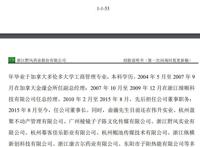子谦译文|创业教什么:六种主流创业方法的比较(51)
2023-06-03 来源:旧番剧
这里所比较的创业方法的一个关键区别是它们的起源:有些起源是基于学术性的,有些是基于实践性的,这是一种有目的的抽样策略,目的是在更深层次上揭示了这一关键差异。表1显示,效果逻辑、发现性驱动和规范性创业是缺乏策略的,尤其是与实践派创业方法相比,后者为管理创业过程的差异方面提供了相当大的帮助。先前的研究表明,为了触发行为,必须给出详细的指示和行为方法。如果行为策略使创业方法具有可操作性,并反过来与实践者产生关联,那么表1就可以解释为什么实践派的创业方法应用如此广泛,正如Blank和Christiansen所证明的那样,而这也印证了之前的说法,即以学术派的方法很难被实践者理解。同样,Fisher指出,“对于广大受众来说,理解和解释效果逻辑的含义真的很难,就像帽子戏法一样,这种比较以新颖的方式阐明了为什么许多人认为实践派创业方法是缺乏实际意义的原因。While Table 1 shows that all the entrepreneurial methods exhibit an overarching logic of some kind, the more fine-grained analysis in Table 2 reveals a number of shortcomings for practitioner-grounded entrepreneurial methods in terms of theoretical basis. Neither business planning nor design thinking provides articulated underpinnings of uncertainty management. Moreover,while the lean startup methodology discusses uncertainty to some extent, it does not engage in an ontologically or epistemologically sound discussion around what constitutes uncertainty, beyond referring to the need to eliminate it from entrepreneurial processes. Given that uncertainty is a fundamental charac teristic underlying entrepreneurship (McMullen and Shepherd 2006), its absence or weak presence in practitioner grounded entrepreneurial methods may indicate a lack of rigor. These key differences are illustrated through a polar chart in Fig. 3, which shows an evaluation of the six entrepreneurial methods in terms of core, explicit, implicit, or no focus in discussions on uncertainty management.
猜你喜欢
动漫推荐
免责声明:动漫番剧数据来源网络!本站不收费,无vip,请勿上当!
www.jiufanju.com-旧番剧





















